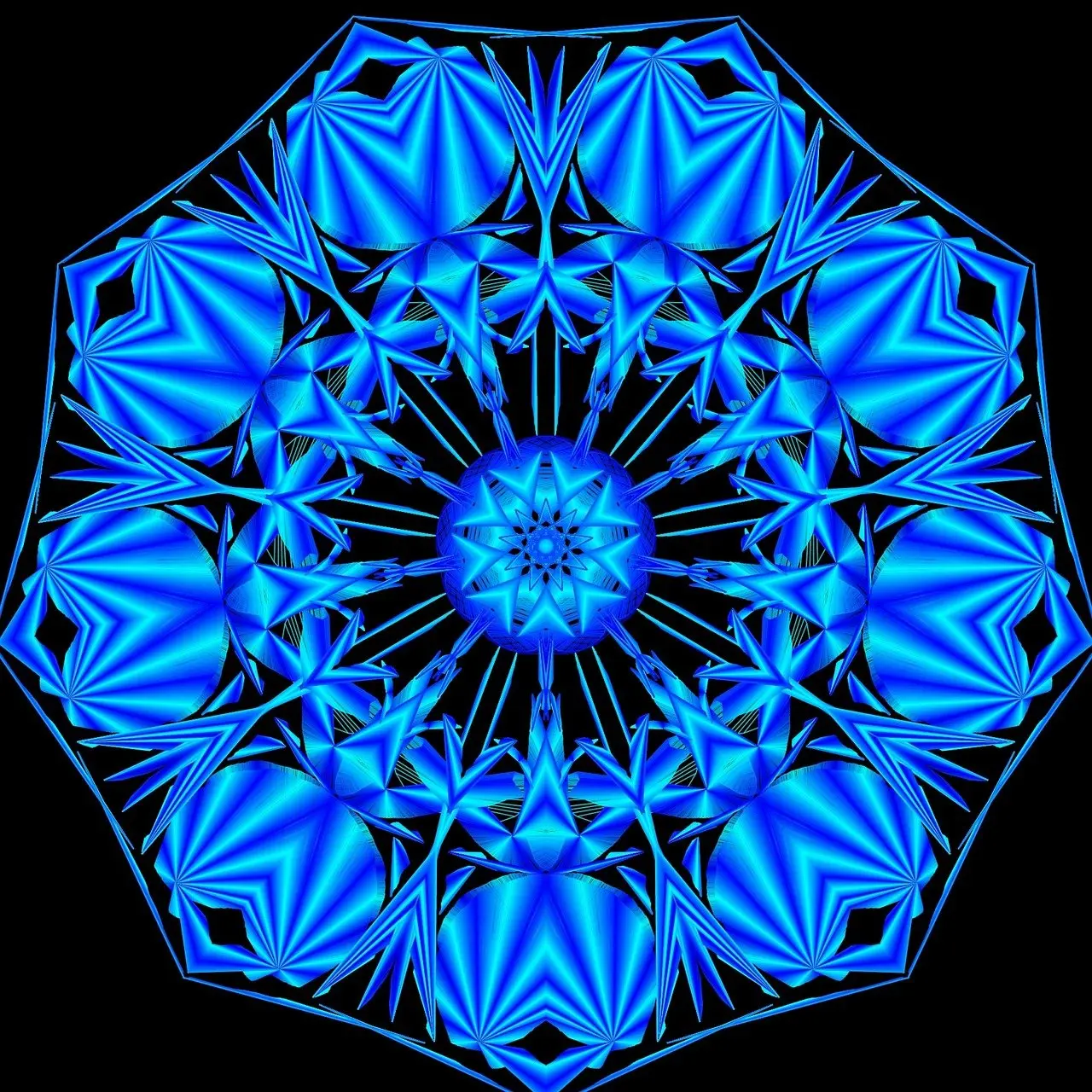Wu Wei Explained: Natural Flow of Life

Looking for more amazing products? Check out our online store and explore our collection here! Happy shopping!
Before diving in, please note: This post is for informational purposes only. If you’d like to know more about how we approach topics, feel free to check out our friendly Disclaimer Page.
Hey there, amazing readers! 
We’re committed to delivering quality posts, and your support (even just sticking around despite the ads) means everything to us. So, bear with us, and thanks for helping us keep the good vibes rolling. Now, on to the fun stuff!
TRANSLATE BUTTON AT THE END OF THE ARTICLE
A Quick Overview
Wu Wei, often translated as "non-doing" or "effortless action," is a key concept in ancient Chinese philosophy, particularly in Taoism.
It emphasizes the natural flow of life and the importance of aligning oneself with the rhythms of the universe.
By practicing Wu Wei, individuals can achieve harmony with nature, reduce stress, and cultivate inner peace and balance.
This article will delve into the origins of Wu Wei, its key concepts, practical applications, benefits, differences from forced effort, insights from the Tao Te Ching, modern interpretations, comparisons between Eastern and Western thought, overcoming obstacles, and ways to embrace Wu Wei in daily life.
Understanding Wu Wei: The Art of Non-Doing
Wu Wei is not about inaction or laziness but rather about acting in accordance with the natural order of things.
It involves letting go of excessive effort and allowing things to unfold naturally.
By embracing Wu Wei, individuals can tap into the effortless flow of life and achieve greater effectiveness with minimal resistance.
It is about being in tune with the present moment and responding skillfully to circumstances as they arise, rather than trying to control or force outcomes.
Origins of Wu Wei: Ancient Chinese Philosophy
The concept of Wu Wei has its roots in ancient Chinese philosophy, particularly in Taoism.
It is found in the Tao Te Ching, a foundational text attributed to the sage Lao Tzu.
Taoism emphasizes living in harmony with the Tao, or the natural way of the universe.
Wu Wei is seen as a key principle for achieving this harmony, as it encourages individuals to align their actions with the spontaneous and effortless flow of life.
Key Concepts of Wu Wei: Harmony with Nature
At the core of Wu Wei is the belief that everything in the universe is interconnected and in a state of constant flux.
By aligning oneself with this natural flow, one can experience greater ease and effectiveness in life.
Key concepts of Wu Wei include spontaneity, simplicity, humility, and receptivity.
It is about letting go of ego-driven desires and allowing things to unfold organically, without resistance.
Wu Wei in Practice: Finding Effortless Action
Practicing Wu Wei involves cultivating mindfulness, awareness, and a deep sense of trust in the natural unfolding of events.
It requires letting go of attachment to outcomes and embracing the present moment with open-heartedness.
By relinquishing the need to control every aspect of life, individuals can tap into a sense of flow and ease that allows for greater creativity, intuition, and spontaneity in their actions.
Living in the Moment: Applying Wu Wei Daily
To apply Wu Wei in daily life, individuals can start by cultivating mindfulness through practices such as meditation, yoga, or tai chi.
They can also practice letting go of rigid expectations and embracing uncertainty with a sense of openness and curiosity.
By staying present and attuned to the rhythms of nature, one can navigate life’s challenges with grace and resilience.
Benefits of Wu Wei: Stress Reduction and Clarity
By practicing Wu Wei, individuals can experience reduced stress, increased clarity, and enhanced well-being.
By letting go of the need to control every aspect of life, they can find greater peace and balance in the midst of chaos.
Wu Wei allows for a more relaxed and harmonious approach to life, fostering a sense of flow and alignment with the natural order of things.
Wu Wei vs. Forced Effort: The Difference
Wu Wei differs from forced effort in that it emphasizes allowing things to unfold naturally, rather than trying to force outcomes through sheer willpower.
While forced effort may lead to temporary success, it can also result in burnout, frustration, and a sense of disconnectedness.
Wu Wei, on the other hand, encourages individuals to work smarter, not harder, by aligning their actions with the natural flow of life.
Tao Te Ching and Wu Wei: Insights from Lao Tzu
The Tao Te Ching, attributed to Lao Tzu, offers profound insights into the principles of Wu Wei.
Lao Tzu emphasizes the importance of humility, simplicity, and receptivity in achieving harmony with the Tao.
He teaches that by letting go of excessive striving and ego-driven desires, individuals can tap into the effortless flow of life and experience true fulfillment.
Modern Interpretations of Wu Wei: Relevance today
In today’s fast-paced and hectic world, the concept of Wu Wei remains highly relevant.
Many modern thinkers and practitioners, including psychologists, mindfulness experts, and leadership coaches, draw on the principles of Wu Wei to promote well-being, resilience, and effectiveness.
By integrating Wu Wei into daily life, individuals can navigate challenges with greater ease and grace.
Wu Wei in Eastern and Western Thought: A Comparison
While Wu Wei is deeply rooted in Eastern philosophy, its principles have resonated with thinkers in the West as well.
Concepts such as flow, mindfulness, and effortless action bear similarities to the principles of Wu Wei.
Both Eastern and Western traditions emphasize the importance of aligning one’s actions with the natural order of things and finding harmony with the rhythms of life.
Overcoming Obstacles with Wu Wei: Resilience
Wu Wei can help individuals overcome obstacles by fostering resilience, adaptability, and a sense of flow.
By cultivating a mindset of non-resistance and acceptance, individuals can navigate challenges with greater ease and grace.
Rather than viewing obstacles as barriers to success, Wu Wei encourages individuals to see them as opportunities for growth and learning.
Embracing Wu Wei: Cultivating Inner Peace and Balance
To embrace Wu Wei is to cultivate a sense of inner peace and balance in all aspects of life.
By aligning one’s actions with the natural flow of life, individuals can experience a deep sense of connection, purpose, and fulfillment.
Through practices such as meditation, mindfulness, and self-reflection, one can tap into the inherent wisdom of Wu Wei and live in harmony with the universe.
Conclusion
Wu Wei, the art of non-doing or effortless action, offers a profound philosophy for living in harmony with the natural flow of life.
By embracing the principles of Wu Wei, individuals can reduce stress, enhance clarity, and cultivate inner peace and balance.
Through mindfulness, humility, and receptivity, one can navigate life’s challenges with grace and resilience.
Whether in Eastern or Western thought, the relevance of Wu Wei remains timeless, offering insights into the art of living in alignment with the rhythms of the universe.
By overcoming obstacles with Wu Wei and embracing its principles in daily life, individuals can experience a profound sense of connection, purpose, and fulfillment.

The Enlightenment Journey is a remarkable collection of writings authored by a distinguished group of experts in the fields of spirituality, new age, and esoteric knowledge.
This anthology features a diverse assembly of well-experienced authors who bring their profound insights and credible perspectives to the forefront.
Each contributor possesses a wealth of knowledge and wisdom, making them authorities in their respective domains.
Together, they offer readers a transformative journey into the realms of spiritual growth, self-discovery, and esoteric enlightenment.
The Enlightenment Journey is a testament to the collective expertise of these luminaries, providing readers with a rich tapestry of ideas and information to illuminate their spiritual path.
Our Diverse Expertise
While our primary focus is on spirituality and esotericism, we are equally passionate about exploring a wide range of other topics and niches 

To ensure we provide the most accurate and valuable insights, we collaborate with trusted experts in their respective domains 
Our blog originally focused on spirituality and metaphysics, but we’ve since expanded to cover a wide range of niches. Don’t worry—we continue to publish a lot of articles on spirituality! Frequently visit our blog to explore our diverse content and stay tuned for more insightful reads.
Hey there, amazing reader! 
Check out our store here and take a peek at some of our featured products below! Thanks for being awesome!














